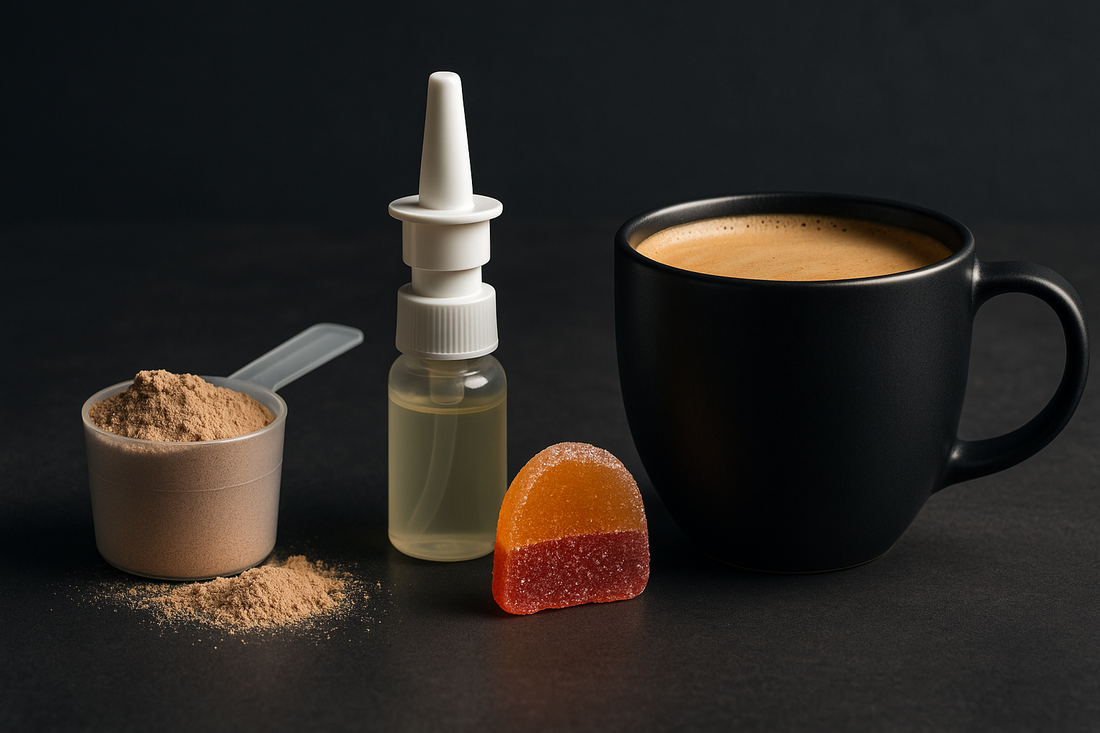
Caffeine for sport: does it improve performance?
Share
Caffeine is everywhere in the world of sport. It's present in drinks, snacks and even energy powders like Super Shot. This makes perfect sense, since properly used, caffeine can have a tangible impact on concentration, endurance and the boost you need during exercise.
Caffeine, a real plus for effort
When it comes to performance, caffeine is a natural choice for athletes. It acts on several levels: it improves alertness, reduces fatigue and boosts motivation. Valuable effects, particularly during phases of intense or prolonged effort.
By stimulating the central nervous system, it helps you stay focused on your goals, even during long or demanding training sessions. It also promotes better use of fat as an energy source, saving your glycogen reserves. The result: you go further, longer, without feeling like you're pushing yourself.
So it's no coincidence that caffeine is part of the routine for many athletes, both amateur and professional. Hot drinks, gummies or liquid shots: everyone adapts their intake to their preferences and the time of day. The important thing is to choose the right form and timing to avoid energy spikes or overdose.
The right format, a question of session
In sport, a good strategy always starts with good preparation. And that includes the form in which you consume your caffeine.
Before an explosive session like sprinting or HIIT, the body needs a quick trigger. By taking it sublingually (directly under the tongue), the caffeine quickly enters the bloodstream, without waiting for digestion. Super Shot, our fast-acting is designed for athletes who want to feel the effects in just a few minutes.
For longer efforts, such as running or cycling, the aim is to maintain a constant energy level. In this case, dilution in a drink will support you over time, without creating a sudden peak followed by a slack period.
You can also adjust your intake according to the time of day. In the morning, caffeine wakes you up and prepares your focus. At the end of the day, avoid exceeding 150 mg, so you can enjoy a good night's sleep and recover properly.
A controlled routine, less fatigue after training
Caffeine can be an asset... as long as it's in the right dosage. If it's not properly integrated into your daily routine, it can disrupt your sleep, increase your heart rate or cause rebound fatigue after exercise.
To benefit from its positive effects, always start with a moderate dose (between 100 and 200 mg) and adjust according to how you feel.
Caffeine can also be combined with other active ingredients to reinforce its action:
- Taurine promotes more stable stimulation
- Maltodextrin supports carbohydrate reserves during exercise
- B vitamins optimize energy metabolism.
In fact, taurine + caffeine to boost cognitive endurance would be an excellent combo..
These synergies are often integrated into new formulas, to support your performance while limiting side effects. By adapting your routine and choosing the right formats, you can create an environment conducive to performance.
Finally, remember to drink regularly during your activity. Even slight dehydration can amplify the side effects of caffeine and slow down recovery. You can also test your protocol on a light training day, to adjust before a more demanding session.
